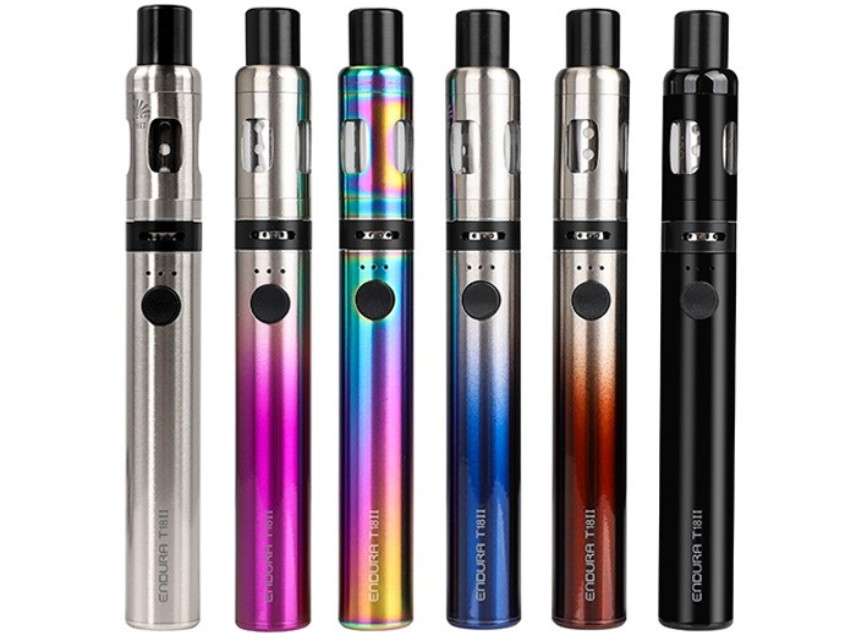'Seminal Study' Provides Compelling Evidence That E-Cigarettes Are More Effective Than Other Nicotine Products for Smokers Trying to Quit
A randomized trial found that vapers were nearly twice as likely to quit as NRT users.

A new British study provides the strongest evidence yet that e-cigarettes are more effective as a smoking cessation aid than other forms of nicotine replacement. The results, reported yesterday in The New England Journal of Medicine, should encourage public health officials in the United States to embrace the harm-reducing potential of vaping, as their counterparts in the U.K. have been doing for years, rather than portraying e-cigarettes as a menace.
The researchers, led by Queen Mary University psychologist Peter Hajek, randomly assigned 886 smokers interested in quitting to receive either a vaporizer kit or nicotine replacement therapy (NRT) products. The subjects in the vaping group initially received a bottle of tobacco-flavored e-liquid and were told to choose whatever flavor they wanted after they finished it. The subjects in the NRT group were free to choose nicotine patches, gum, lozenges, nasal spray, inhalers, mouth spray, mouth strips, or microtabs. Both groups also participated in "behavioral support" sessions.
After a year, 18 percent of the vapers were no longer smoking, compared to 9.9 percent of the NRT users. "Both e-cigarettes and nicotine-replacement products were perceived to be less satisfying than cigarettes," Hajek et al. write. "However, e-cigarettes provided greater satisfaction and were rated as more helpful to refrain from smoking than nicotine replacement products."
Hajek thinks the study will help legitimize e-cigarettes as an option for smokers who want to quit. "Health professionals have been reluctant to recommend [e-cigarettes] because of the lack of clear evidence from randomized controlled trials," he told The New York Times. "This is now likely to change." Neal Benowitz, a clinical pharmacologist who is a leading expert on nicotine and tobacco, called the trial "a seminal study" that is "so important to the field."
A randomized trial reported in 2013 found that e-cigarettes were slightly more effective than nicotine patches: The six-month quit rate for vapers was 7.3 percent, compared to 5.8 percent for patch users. That study, Hajek et al. note, "used cartridge e-cigarettes with low nicotine delivery and no face-to-face contact." Improved nicotine delivery helps account for the higher quit rate in the new study, which bodes well for Juul, the leading e-cigarette in the U.S. market.
While studies like these provide strong evidence that e-cigarettes help smokers quit, success rates in the real world are apt to be higher, since smokers can choose the products that work best for them rather than being randomly assigned to one. The finding that e-cigarettes are almost twice as effective as NRTs is similar to the results of a survey that health psychologist Robert West and his colleagues conducted several years ago. They found that 20 percent of vapers were no longer smoking, compared to 10.1 percent of NRT users. Because e-cigarettes have improved since then, their advantages for smokers who choose them may be greater nowadays.
As tobacco harm reduction advocate Carl Phillips pointed out after the West study was published, "Self-selection is not a problem, but rather part of what matters in the real world. There is no possibility that every smoker in a population will be assigned one method to quit. Thus, there is no reason to try to figure out which would be the best single method to assign to everyone (which is basically what a well-done clinical study would show). Rather, in the real world, each of the cessation methods is available to everyone, and (since it does not matter which one someone uses, from the perspective of health) it is best if they can find which one works best for them (which refers to both effective smoking cessation and ongoing happiness)."
